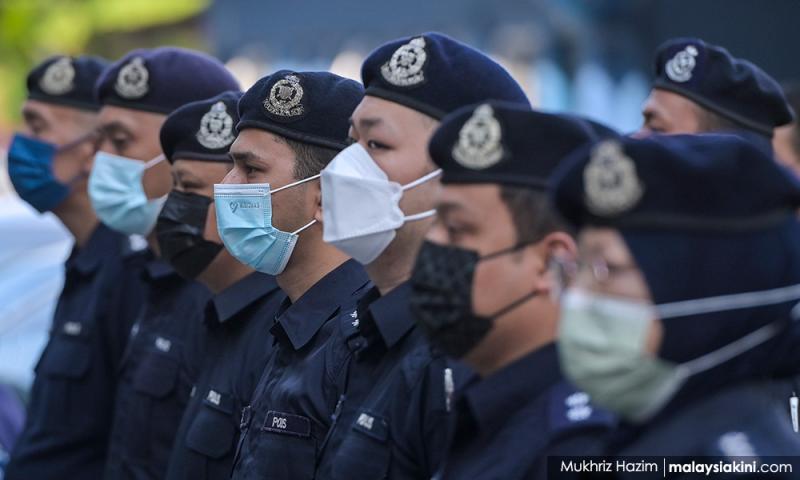LETTER | Election campaigns are not protests
LETTER | Home Minister Saifuddin Nasution Ismail has recently claimed that the large presence of police in the election campaigns for the Pelangai by-election is to “maintain safety and public order”.
This was his defence against PAS secretary-general Takiyuddin Hassan, who recently claimed that the large police presence has “worried the voters”.
It is not the first time the government abused the police to suppress the impact of democratic processes. When protests or rallies happen, there will always be a number of participants being summoned by the police, as if those events are illegal.
Nevertheless, it is undeniable that the existence of the Peaceful Assembly Act grants the police the legal power to investigate any individuals who are suspected of violating assembly regulations. The act also allows police to be present at the locations of the assemblies, sometimes in large numbers, depending on their scale.
However, election campaigns are not protests or rallies. Why does the government need to deploy police there?
What kind of safety threats or disruptions of public order would be posed by a politician addressing his or her supporters with speeches?
As a politician with decades of experience, Saifuddin should understand that election campaigns are nothing more than an echo chamber which only caters to the supporters of a politician, a party, or a coalition. Non-supporters will not bother to attend such events.
With this, is Saifuddin expecting the supporters to exert violence on the politician they support? Or is he expecting the politician, who is merely there to deliver his or her rhetoric, to exert violence on his or her supporters, costing his or her votes and electoral victory?
In another aspect, Saifuddin also said the police are there to ensure that there is no stirring up of 3R (race, religion, and royalty) issues by the campaigning politicians.
3R is now always seen in the headlines since the unity government declared war on it by actively investigating and charging political warlords who like to stir up such sentiments.
The government even has plans to introduce a specific law to counter the abuse of 3R issues by politicians.
The fact is, however, all the politicians currently being investigated or charged for 3R-related offences are only acted upon when police receive reports after they committed the acts. Take note of the word “after”.
While it can be expected that some politicians would most probably stir up 3R-related issues in their campaigns, the police could not rush up the stage and catch them directly at the locations of the campaigns. This will lead to chaos, which is the opposite of “maintaining public order”.
There is a wide range of media organisations present at the election campaigns, actively shooting videos and photos to be published on their platforms. The supporters who attend the campaigns would most probably also record their own footage to be posted on social media.
These people are the eyes and ears of the police on whether there are 3R issues being abused by the campaigning politicians. The police can always utilise these sources and launch investigations when there are allegations of violations or reports being lodged.
So, to Saifuddin again, why is there a need to deploy large police presence at election campaigns? Don’t the police have other more significant things to do?
I personally feel nervous when I see police, even though I do not violate any laws. Such feelings intensify when I am physically near the police personnel, or as the police approaches me.
Although I could not speak for others, I am pretty sure that there are other people out there who share similar sentiments as myself.
Hence, how can Saifuddin be so confident that the large police presence at election campaigns would not affect the democratic process? Their presence is already a form of suppression by nature, what more when they appear in large numbers.
The views expressed here are those of the author/contributor and do not necessarily represent the views of Malaysiakini.
RM12.50 / month
- Unlimited access to award-winning journalism
- Comment and share your opinions on all our articles
- Gift interesting stories to your friends
- Tax deductable
